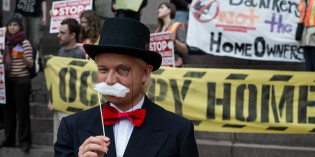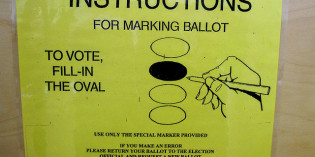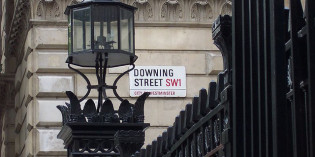Achieving accountable government

In the interests of equality and diversity, our representatives ought to be representative
Should our political representatives be representative? And if so, does that mean that politicians are incapable of people who do not look and sound like them? Reflecting on the recently released national councillor census, the Centre for Public Scrutiny’s Jessica Crowe argues that representatives should be representative, with the whole democratic process benefiting from a […]

The real lesson from the financial crisis is that we need to stop insulating financial regulation from democracy
The financial crisis has generated a number of policies and discussions across Europe aimed at reforming financial regulation. Nicholas Dorn writes that while there is widespread recognition that a rethink is required to prevent a similar crisis from occurring again, the core problem underlying the crisis has yet to be addressed: the fact that financial regulation is […]

A renewed democracy must stop infantalising citizens and instead make them privy to the policy-making process
In a digital age, the closed world of institutions is no longer viable. To rebuild trust and re-engage citizens, technology can be used to change the way decisions are made, how citizens are involved and how institutions are held to account, argue Dave Richards and Martin J. Smith Similar PostsCriticisms of the Westminster model of politics […]

20 things we learned about democracy in July 2014
July 2014 was a quieter month for democracy, with things settling down into a lull for the summer. But that doesn’t mean that nothing of note happened, with Sean Kippin bringing you the latest instalment of our 20 things we learned about democracy series, which is once again bursting with choice nuggets of democracy information […]

How we choose our political leaders tells the world a lot about us
Nearly all democratic countries’ accept, to varying degrees, the notion that rulers should be chosen by the people, and subject to various limitations, checks and balances. However, many people who subscribe to these ideals are also comfortable with the notion of a benign hegemon in the international realm – namely the United States. Here, LSE’s Danny […]

The Icelandic experience challenges the view that constitutional process must be exclusionary and secretive
In the wake of the financial crisis which nearly bankrupted Iceland, the country began a process to create a new constitution which could maintain the confidence of a public understandably disenchanted with their political elite. What followed was a ‘crowd-sourced’ project which ultimately fell at the final hurdle. However the experience did show that it is […]

Competitive elections are good democracy, creating more engaged voters over a longer period of time
The closer the election, the better for democracy. At least, that is the conclusion of research carried out by Heather Evans. She finds that a close election, and all of the resulting attention that ensues, makes voters more politically engaged, a change which continues into the next election cycle. She additionally argues that this insight […]

Reshuffles tend to have little impact on the polling position of the governing party
There has been much recent speculation as to whether the Prime Minister will use this week to reshuffle his Cabinet, and whether any such reshuffle will see an influx of new faces. But do government reshuffles have any impact whatsoever on voting intention? Rich Durber argues that the impact varies, but by and large they tend […]

Five minutes with Diane Coyle: “The BBC needs to stay independent and accountable to the people who pay for it”
In an interview with Joel Suss, editor of the LSE British Politics and Policy blog, Diane Coyle discusses the future of the BBC and the need for it to truly reflect Britain in all its diversity. She also discusses the impact of technology and globalisation. The transcript of her recent public lecture at the LSE, ‘A 21st Century BBC’, can be […]

The problem of the political class is easy to exaggerate, but difficult to define
It is frequently said that Britain’s quality of democracy is effected by a paucity of good quality politicians, with the “political class” existing as little but an impenetrable, self-interested elite, disconnected from the preferences of the masses. Here, Paul Cairney lifts the lid on the realities of the political class, and argues that the ‘political […]


 Democratic Audit's core funding is provided by the Joseph Rowntree Charitable Trust. Additional funding is provided by the London School of Economics.
Democratic Audit's core funding is provided by the Joseph Rowntree Charitable Trust. Additional funding is provided by the London School of Economics.